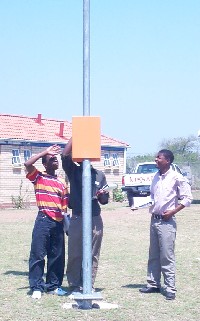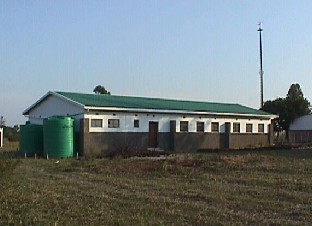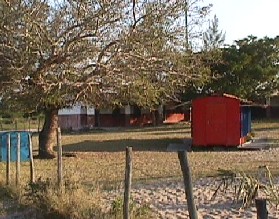Project
Phases
The ESRI project commenced in July 2000 at a meeting which brought together
partners from the three participating countries of Kenya, Uganda and South
Africa and the UK Project Coordinator, ESD. Since then, the project has
been conducted around the following phases:

Recording PV
system data during clinic
energy audit
Methodology
Collection of data at grassroots level
- Energy use
data (quantitative)
- Energy use patterns/problems(qualitative)
Training and capacity building to ensure that rural institution
staff, energy
service advisors (ESAs) and country co-ordinators can communicate views
effectively.
Participatory approaches are also being adopted to maximise accuracy
of data collected and to minimise bias.
Survey instruments (an energy audit methodology) will be flexible
to gather both quantitative and qualitative data.
Information gathering and verification of initial findings will
continue during energy planning, through the continued participation of
rural institutions.
Guidelines will also be developed which reflect the experience
gained, and these will widen the applicability of the project's results.
- Identification of potential ESAs, i.e. existing organisations such as SMEs, local NGOs, etc who will develop ESA capability within the project.
- Training of potential ESAs
- Design of standard energy audit methodology and format.


A school building in rural South Africa and its genset equipment
- Supporting ESAs conducting energy audits of rural institutions with full involvement of staff
- Working with ESAs to analyse energy supply, demand and end-use for each institution and identify opportunities for improving end-use efficiencies and for investing in improved energy technologies such as renewables.
- Monitor ESAs during presentation of reports to the institutions, outlining of the options available (with costs) and discussion of preferences.
- Assist ESAs to prepare Energy Action Plan for each institution based on prepared options.
- Support ESAs when presenting Action Plans to the institutions.
- Guide ESAs in developing their business plans.
- Support ESAs as they work with the institutions to implement the plans (providing training, linking with designers, technicians, suppliers)
- Undertake follow-up visits to provide continuing assistance as required and to monitor the extent of impact of the initiatives.
- Develop Guidelines based on project findings.